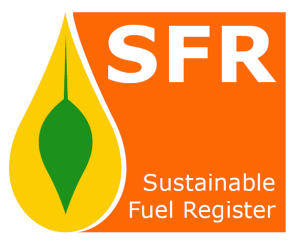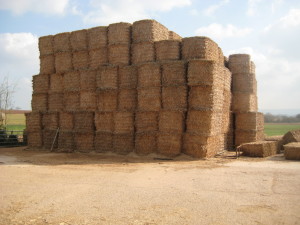Sustainable Fuel Register to launch at Energy Now
 A new industry reporting scheme is set to allow tens of thousands of tonnes of previously unavailable biomass to be used in Renewable Heat Incentive (RHI). accredited projects. Crops for Energy (C4E) and Farm Energy Centre (FEC) have joined forces to operate a new scheme called the Sustainable Fuel Register (SFR).
A new industry reporting scheme is set to allow tens of thousands of tonnes of previously unavailable biomass to be used in Renewable Heat Incentive (RHI). accredited projects. Crops for Energy (C4E) and Farm Energy Centre (FEC) have joined forces to operate a new scheme called the Sustainable Fuel Register (SFR).
The register will be the first industry led, self-sustaining approved supplier list. This will provide producers, traders and users of non-wood fuels with a simple way of meeting sustainability criteria required for compliance with the RHI. The SFR will be formally launched at Energy Now on 10 February 2016.
Users of wood fuels already benefit from the Biomass Suppliers List (BSL) which allows them easy compliance with the RHI. But, users of non-woody fuels have had no such scheme and have only been able to demonstrate compliance by self-reporting which is expensive and time consuming.

Miscanthus bales and chips, as well as processed forms of the fuel such as pellets and briquettes will be covered by the SFR.
Kevin Lindegaard of C4E says
“We have created a simple and affordable scheme for users based on financing through user subscriptions scaled to take into account quantity of fuel produced, traded or consumed.”
Fuels covered by the list include Miscanthus grass, straw, grass, bracken and food wastes such as used coffee grounds. SFR will thereby provide additional routes to market for these products and reduce the amount of straw and other residues exported for a low price or discarded.
Jonathan Scurlock of the National Farmers Union (NFU) says
“The NFU believes firmly that all solid biomass fuels, whether from woodland or agricultural land, should be treated on a level playing field in order to maximise the opportunities for British farmers and landowners. Since last year’s introduction of fuel sustainability reporting, we have strongly supported FEC and C4E as having the right competencies to operate a more comprehensive Sustainable Fuel Register.”
A DECC spokesperson said
“The SFR will minimise the administrative burden on both RHI participants and fuel suppliers. This industry-led approach demonstrates the maturing market for biomass fuel and will play an important role in ensuring the continuing success of the RHI scheme.”
Notes for editors:
1. The Renewable Heat Incentive (RHI) aims to increase the amount of renewable energy production in the UK by encouraging the installation of renewable energy technologies for heating buildings or for processing activities. The scheme pays a tariff to participants with accredited installations. There are two schemes, the domestic and non-domestic RHI.
2. From 5th October 2015 the Government required that sustainability criteria must be met for all users of biomass fuel claiming the Renewable Heat Incentive (RHI).
3. Woody biomass sources which can be registered on the BSL are roundwood (hardwood and softwood), primary processing sawdust and chip, arboriculture risings, short rotation coppice (SRC) and waste wood.
4. Miscanthus is a perennial energy crop with the largest area in the UK with 10,000 hectares and straw yields around 10 million tonnes in the UK each year.
5. There are around 300-500 users of non-woody biomass under the non-domestic RHI. Currently the only route for users to demonstrate compliance with sustainability criteria is through self-reporting. This is complicated and can be expensive. There is currently no avenue for non-woody fuel suppliers to demonstrate that their fuel is sustainable.
6. Producers, traders and self-suppliers will be able to register by completing an application on the SFR website and meeting relevant criteria.
7. The UK Government’s Bioenergy Strategy was published in April 2012 and predicts that the greatest increase in domestic bioenergy supply will come from agricultural residues and energy crops.